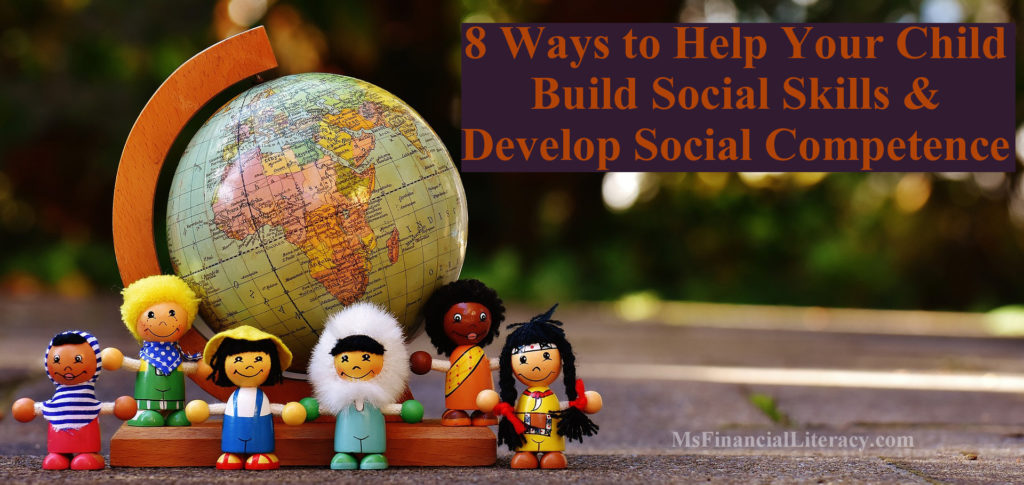My Concern as a Parent Using Informal Day Care
I have been using informal day care (such as in-home care) since my daughter was 8-months-old. For a few months, it was just my daughter and her child care provider at home. On the one hand, I’m aware of the many benefits using informal care (both for my daughter and my marriage). My daughter enjoys the undivided attention she gets. She acquires amazing skills every day. All in all, we have strong reasons choosing to spend 35% of our monthly expenses on child care (I wrote about this in an older article).
On the other hand, being a professional working in the early care and early education field (I also did research in this area while in graduate school), I am always being fed with information about the long list of advantages sending my child to a formal day care setting (such as licensed day care and child care centers). One of the areas these settings generally do well in is providing enrolled children opportunities to build social skills throughout the day.

When it’s just my daughter and her child care provider, my daughter is missing out on those opportunities. As such, I think a lot about how to prepare my daughter for formal school (and the social world). How can I facilitate or structure my daughter’s day so that there are opportunities for her to interact in a group setting with her peers, meanwhile developing her social skills and reinforcing those skills.
Until my husband and I are ready to send our daughter to a formal day care where she’d be interacting with other children around her age, I am constantly looking for opportunities for her to be in a group setting.
In no way am I suggesting that one form of care is better than the other. Just like informal day care doesn’t necessarily provide the ideal setting for child development, formal day care lacks in certain areas, too. As a parent, you need to figure out what works best for you, your child and your family. In a perfect situation, you would want to provide your child with the best of both worlds.
Resources I Sought Out for My Child to Build Social Skills and Develop Social Competence
For parents who are willing to spend money, you have many options. My husband and I are already spending a lot of money on child care. I am looking for free activities for my daughter.
Being the resourceful person that I am (and living in a large city), I have been having much luck seeking out opportunities for my daughter. And I want to share my knowledge and strategy with you. Even if you live in a small town where the number of amenities are limited, I hope this guide will serve as inspiration. Maybe you can generate some ideas together along with other parents in your area.
As you will read, I have all these systems set up for Ruby and my child care provider. And this keeps both of them very busy throughout the week. I feel very good knowing that my daughter is out and about (in a safe setting) during a portion of the day interacting with kids around her age. This is the best I can do for her until we transition her to formal schooling. And the icing on the cake? All the activities she goes to are free!
STRUCTURED SETTINGS
In these settings, there’s usually at least one professional facilitator (and assistants) leading the activity.
Local Library Baby/Toddlers/Preschoolers Playgroup and Storytime
My city has at least 10 public libraries. Most of them offer some kinds of organized activities daily for young children from 6-months to 5-years-olds. A librarian (and sometimes an assistant) is usually present. Children and their caregivers get together to read, sing and play together.
Different locations have different schedules when they hold the various meet-ups. For instance, one location might offer ‘Baby Rhyme Time & Playtime’ every Tuesday and Thursday, and another location might offer the same session on Mondays and Wednesdays. As there are three libraries within 15 minutes of driving distance from where we live, my daughter can go to one activity almost every day of the week.
Ruby started attending these free sessions when she was 11-months old. She has gone to ‘Baby Rhyme Time & Playtime’, ‘Toddler Tales & Playtime’, ‘Preschool Storytime’ and ‘Lego Club’. These sessions typically run for one hour. On average, Ruby goes to two sessions every week.
Neighborhood Recreation Centers
The neighborhood recreation center in my area has a large open gym. Every Friday, the staff puts out all kinds of toys (including large cars, basketball stands and jumpy…) and arts and crafts materials for toddlers and preschools. Admission is about $5 to $6 per session (each 90 minutes). However, every summer, the recreation center offers eight sessions for free. My daughter attended all eight sessions this past summer.
Family Resources Centers
I learned about this service through work. Part of the work the family resource center in my neighborhood does is preparing toddlers (those who aren’t attending formal day care) for preschool. Another service the center provides is social and instructional support for in-home child care providers (e.g, how to teach a toddler to read).
Ruby is currently attending both sessions with my child care provider. One session is on Mondays and the other is on Wednesdays. The center holds birthday parties for the kids. In-home providers also get a free lunch!
Child Care Resource & Referral Centers
I also learned about this service through work. This center also provides social and instructional support for in-home child care providers. Licensed providers and their kids are also welcome to attend the workshops and activities. This event happens once every two weeks, with each session being 2 hours.
UNSTRUCTURED SETTINGS
How you and your organizers want to run these get-togethers are up to you. Early on, there might little or no structure. Then, as the group(s) gets larger, you might want to implement some structure and guidelines in place.
Meeting at Neighborhood Playgrounds
My child care provider likes to take Ruby to the playground around midmorning. There are usually other kids in the playground around that time, too. Being in the playground is a great opportunity for kids to learn to be brave and take the initiative to approach other kids. I always enjoy watching (at a safe distance) how Ruby interacts with other kids while she’s on her own. The kids do all kinds of awkward and funny nonverbal gestures. I get a real kick out of this each time.
Having Playdates at Someone’s Home
Several of our friends (who also have young kids) and I have worked out a schedule where each of us take turns one evening a month doing babysitting. This setup is great for you and your spouse to enjoy a relaxing and intimate evening out or stay-in, meanwhile your child is spending time with her peers doing their own things.
Meeting at the Local Museums
There are three ways to do this in my city for free.
First, if you know a family who has purchased the annual family pass to local museums, that particular pass can admits one family and their kids plus another family (up to 2 adults) and their kids (up to 2 kids). We know of three families who have this pass. When one of the families goes, my daughter and child care provider just tag along if the schedule works out. I show my appreciation toward my friends’ generosity in non-monetary ways J.
Second, if you are a library patron (holder of a library card), you can get a free pass from the library to visit participating museums—one free pass per patron per museum per year. We have three library cards in the household (one belongs to my husband, one belongs to me and one belongs to my child care provider). Just by using this strategy, my daughter gets to visit any participating museum at least three times a year per museum.
Third, many museums throughout the city offer free admission days (once every quarter) to residents, alternating between neighborhoods. On the day when it’s free for your neighborhood, the adult present needs to show ID for address verification. This is a great way to meet other young families in your neighborhood.
Picnic in the Park
I enjoy doing this on the weekends. All you need are some picnic blankets, finger food, balls, buckets, shovels and few other activities that encourage the kids to work together.
Readers, how are the amenities in your town/city? How are you and your kids taking advantage of them?
What would you like your city planners to work on?
